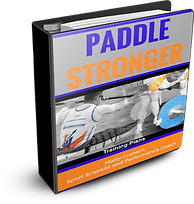Research bite: Do you even lift? Strength training for running
- Matty Graham
- Aug 30, 2016
- 2 min read
Now this is a topic that I have covered before in previous articles. However, I want to share with you some new research that again reinforces the importance of runners hitting the gym. Not only to do the now widely accepted body weight type core exercises, but to actually start throwing some serious tin around.
In a recent research paper 18 endurance runners with ~ 40 min 10 km times were split into two groups. One group was a control group in which they performed their normal endurance training and the other group added two strength training sessions per week to their training plan. The strength training sessions comprised of 3 sets of half squat, leg press, calf raise and knee extension starting at 8-10 rep max through to 3-4 rep max over the 8 weeks.
Following 8 weeks of training it was found that the group who did the strength training as well as their normal run training improved their peak treadmill speed by 3% and their 10 km time by 2.5% (~65 seconds). The improvement in their 10 km time were mainly due to higher speeds during the last 2.8 km of the 10 km time trial.

In another study in was found that two strength training sessions per week for 6 weeks on top of normal run training improved 5 km time trial performance by 3.6% in moderately trained runners. The strength training plan they used included performing 4 sets of 4 reps of Romanian deadlift, parallel squat, calf raises and lunges at 80% of their 1 rep max. The really interesting thing about this study is that following the completion of 6 weeks of strength training the participants went back to only run training for 6 weeks. Over this time the additional gains obtained from the strength training had all but gone within 6 weeks even though they maintained their run training.
Take away message: What can we learn from this research?
- These two research papers add further evidence to support heavy, low volume strength training for improving running performance.
- When planning your strength training you should take into consideration the time between ending your strength training and your goal race. If you stop your strength work to early (which is a common approach used by athletes and coaches) then there is the potential that the benefits you have gained will not be present on race day.
- With this in mind it is suggested that you maintain a lower volume strength training phase leading into your key race or over the competitive season.
Effects of resistance training on neuromuscular characteristics and pacing during 10-km running time trial. Damasceno et al. Eur J Appl Physiol, 2015
The Effects of a Sports Specific Maximal Strength and Conditioning Training on Critical Velocity, Anaerobic Running Distance and 5-km Race Performance. Karsten et al. Int J Sports Physiol Perform, 2015








.png)




.png)









Comments